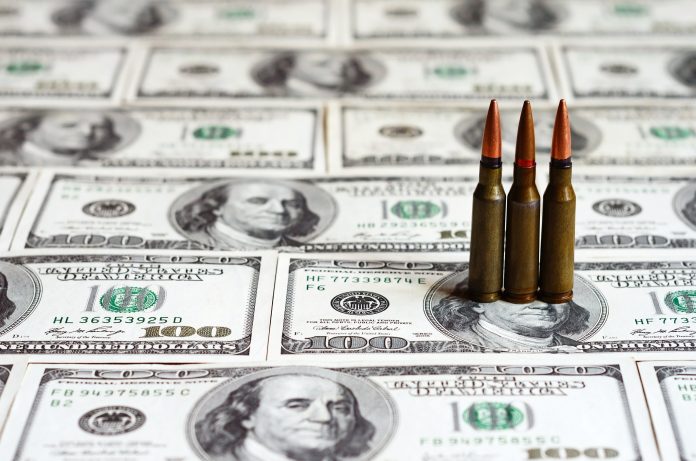Since the beginning of recorded history and even until today, wars and conflicts have been part of the human experience. Regrettably, there is nothing indicating that this could end in the foreseeable future. We have not experienced a worldwide conflict for several decades; but the number of local conflicts and riots has not declined compared to the past. We should consider that human suffering is not the only consequence of war. Every part of the human experience is affected by conflicts including money. Let’s take a look at the impact of war and conflicts on the state our currencies.
Every year, governments spend increasingly more money from the public budget and paid taxes on arms. Many of these governments spend this money even during times of peace when they are not involved in any conflict. History has shown that countries which do not have well planned, long-term budgets favoring the wellbeing of their inhabitants may expect three possible outcomes. These outcomes are: high taxation, a revolution or war. All of these problems have the debasement of people’s assets as a common consequence.
Different perspectives on wars
While we can all agree that war is a net negative for humanity, different people are affected in different ways. There is no doubt that a war is advantageous for powerful countries. This is especially true if the armed conflict does not occur on their land. History has shown that after wars, the resources and control over foreign economies gained lead to high economic growth of the country that won the war. Primarily, some of the specific people involved in the conflict regularly come out of it rich and powerful. Secondarily, it kick-starts the aforementioned economic growth of the country. War often means higher employment and other export, import and provision of services opportunities.
To sum things up, a country that has a high spending on arms compared to its GDP causes waste of public financial resources and the debasement of its currency if there is no war waged. A country that is destabilized and where an armed conflict occurs is also afflicted with debasement of its currency unless it was in a worse state before – for instance, without a stable government. The country that wages a war or causes a destabilization of the regime in another country definitely gains from this if it is sufficiently strong; in addition, its currency should get stronger from the long-term perspective.
In general, we can assume that countries with a small economy and their own currency suffer large impacts from armed conflicts. This impact regularly includes inflation in the range of thousands of percentage points.
There is a sure thing, though – a war needs loads of money. Since 2001, the USA has spent USD 11 577 991 for arms every hour.
Conclusion
Powerful countries are normally the ones who wage war on others. Lately, wars take other forms than armed conflicts; sanctions are a form of war as well. In 2018, the number of countries that came under sanctions rapidly increased. The USA is very active in this regard and has imposed very high sanctions on various countries and goods.
To know more about this topic, take a look at countries distribute their budgets during wars: https://en.wikipedia.org/wiki/War_finance







